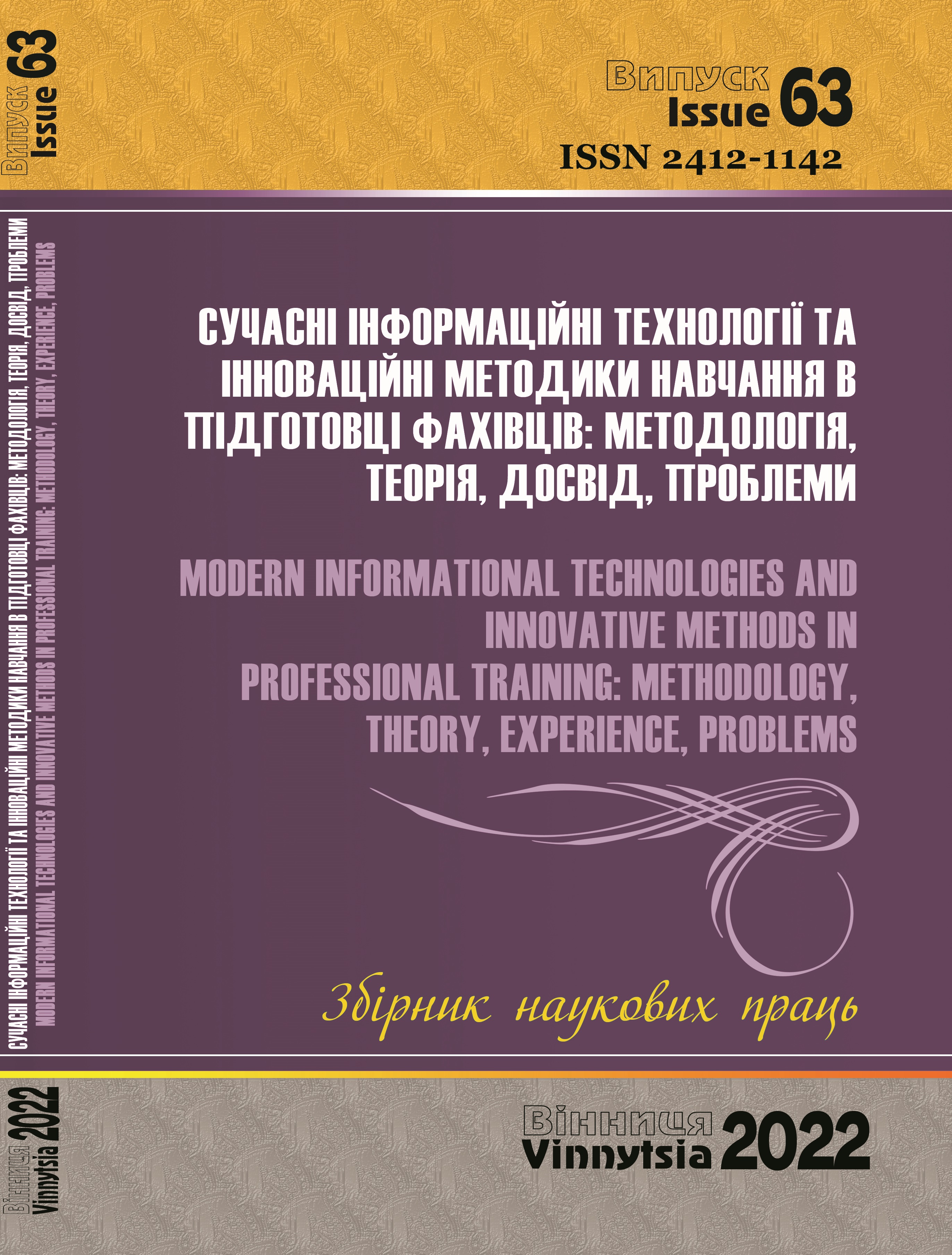FORMATION OF TEACHER'S PROFESSIONAL COMPETENCE IN THE PROCESS OF HEURISTIC DIALOGUE: THEORETICAL ASPECT
DOI:
https://doi.org/10.31652/2412-1142-2022-63-116-123Keywords:
competence, professional competence, New Ukrainian school, teacher of the New Ukrainian school, structural components of professional competence, competenceAbstract
In the presented research on the basis of the analysis of philosophical, pedagogical and
psychological scientific literature the essence of the basic concepts is substantiated: «competence» –
possibility of establishment of communication between knowledge and a situation, «professional
competence» – is characterized by level of professional education, experience and individual abilities.
aspirations to continuous self-education and self-improvement, creative and responsible attitude to
business.
It is determined that the essence of the basic definitions depends on changes both in pedagogical practice
and in the theory of pedagogical systems. It is found out that the formation of professional competence as
an integral result of pedagogical education of a teacher is carried out in the conditions of taking into account
the motivational sphere of his personality; self-education, upbringing and self-education; individualization
and differentiation of training, optimization of the content of the educational process; professionally-
oriented nature of the learning process; interdisciplinary connections; stimulating their needs to expand
their horizons, etc. These are generally recognized ways of forming competence, which become the basis
for finding new innovative conditions to achieve the goal of education.
Thus, the analysis of the content of the basic concepts of the study «competence», «competent»,
«competence» allowed to clarify their compatible characteristics and the relationship between them. These
concepts are revealed by the authors from the standpoint of different scientific approaches to determining
their content, namely functional and informational. The essence is represented through a range of functional
powers and information that allows a person or government body to make informed and informed
management decisions.
Downloads
References
Концепція «Нова Українська школа». URL: novashkola@mon.gov.ua. Дата останнього звернення
03.2021.
Зязюн, І. (2008) Філософія педагогічної дії: монографія. Черкаси. 608 с.
Про вищу освіту: Закон України від 01.07.2014 No 1556-VII URL: zakon.rada.gov.ua›laws/1556- 18. Дата
останнього звернення 06.03.2021.
Професійна педагогічна освіта: компетентнісний підхід: монографія. Житомир. 412 с.
Полякова, О.М. (1999) Формування творчої активності майбутніх учителів у процесі розв’язання
педагогічних задач: Дис. ... канд. пед. наук: 13.00.01 Харків. 188 с.
Тарасевич, Н.М. (2005) Стратегія поведінки вчителя у складних педагогічних ситуаціях: 6.Спецкурс.
Тексти лекцій. Полтава: ІОЦПДПУ. 119 с.
Темерівська, Т.Г. (2004) Формування пізнавальної активності студентів медичного коледжу в процесі
вивчення природничо-наукових дисциплін: Дис. ... канд. пед. наук: 13.00.04. Тернопіль, 197 с.
Єрмак, Н.П. (2005) Педагогічна практика як чинник професійного формування вчителя загальноосвітньої
школи. Наук. часопис Нац. пед. ун-ту ім. М.П. Драгоманова. Сер. 16. Творча особистість учителя:
проблеми теорії і практики: Зб. наук. пр. Київ. Вип. 3 (13). 290с.
Сергійчук, О. (2008) Професійна компетентність майбутнього вчителя. Підготовка студентів до
майбутньої професійної діяльності : науково-теорет. зб. Переяслав-Хмельницький : СКД, Вип. 1. 254 с.
Downloads
Published
Issue
Section
License
Copyright (c) 2022 Ірина Проценко

This work is licensed under a Creative Commons Attribution 4.0 International License.





